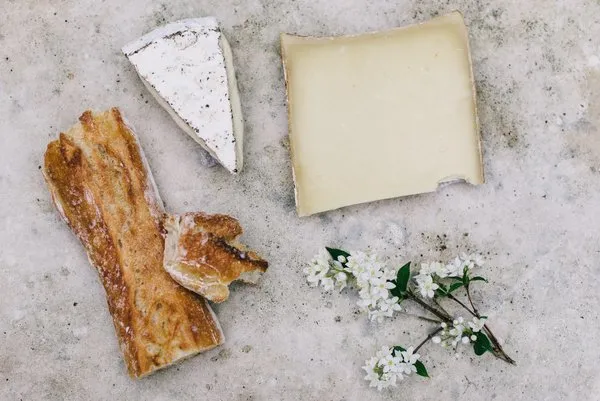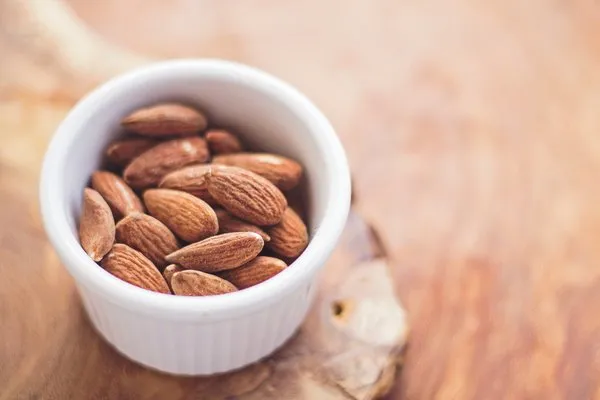Foods rich in tryptophan, magnesium, calcium, vitamin B, and those that boost serotonin and melatonin levels, are the best foods for insomnia.
How do you define insomnia? Insomnia (Nidranasha or Anidra) is the difficulty in initiating or maintaining sound sleep. It may involve waking up early without complete sleep and the inability to fall asleep again. It may also involve waking up with a feeling of tiredness and exhaustion.
Sleep (Nidra) plays a vital role in the mental and physical health of a healthy individual.1 According to Ayurveda one of the most important principles that one should follow to lead a healthy life is the principle of three sub-supporting pillars (Upastambha). Those are diet (Aahar), sleep (Nidra), and celibacy (Brahmacharya).2 The ancient Ayurvedic sage Acharya Sushruta mentioned the factors responsible for the loss of sleep. Those are the increase in Vata Dosha and/or Pitta Dosha, mental disturbance, weakness, or any injury.3

Traditionally, Ayurveda indicates the consumption of the flesh of domestic and aquatic animals, buffalo meat, and buffalo milk for insomnia.4 Wheat, black gram, and milk products like curd & ghee are also possible to alleviate insomnia.5 Fruits like grapes, preparations of jaggery, sugar, and wine6 are also indicated for insomnia. Beyond these, several other foods can be consumed to support healthy sleep.
Here is a list of 21 foods along with research that proves their effectiveness. So you can enjoy a good night’s sleep, every night.
Want more tips for insomnia? Read ‘Sleep: Ayurvedic Home Remedies + 10 Tips To Improve Sleep‘. You may also benefit from a soothing shirodhara session, where warm herbal oil flows in a continuous stream over the forehead. And if you like to sip warm beverages, warm milk before bed, with the addition of ashwagandha, is also quite soothing. Establish a bedtime routine to prepare your mind and body for sleep, and include Ayurvedic oil massage as part of your wellness plan. Questions or comments? Leave them below! Before making any changes to your wellness plan, consult with your healthcare provider.
Foods For Insomnia

Turkey
Small doses of tryptophan (1g) may improve both sleep latency and sleep quality. This can be achieved by consuming approximately 300g (approximately one cup) of turkey.7
Pumpkin Seeds
Approximately 200g of pumpkin seeds provides around one gram of tryptophan which helps in inducing better sleep.8 A study in the Journal of Research and Medical Science found that supplementation of 500mg of magnesium appears to improve insomnia in the elderly. That’s about ½ cup of pumpkin seeds and 1 cup of cooked leafy greens daily.
Whole Milk
“Milk helps to control melatonin production since it is a great source of calcium, a mineral that plays a role in the regulation of melatonin in the body,” explains Palinski-Wade. “Milk is also rich in the amino acid tryptophan which has a calming effect on the body.”
Tryptophan in whole milk per quart is 732 mg and the relative availability of plasma tryptophan for crossing the blood-brain barrier (.081) is quite good for inducing sleep.9
According to Ayurveda, buffalo milk is heavy and unctuous and helps in inducing sleep.10 In fact, warm milk is commonly recommended as an insomnia cure in many homes.
Yogurt
Yogurt also contains plenty of tryptophan and is a rich source of calcium, magnesium, and vitamins B12 and B5 which induces sleep easily. People who experience discomfort by taking milk due to lactose intolerance can take yogurt or curd. The calcium present in it reduces wakefulness and restlessness.

Magnesium enhances the secretion of melatonin from the pineal gland, prevents nervousness, and induces sleep. Vitamin B12 prevents confusion, dementia, and fatigue. Vitamin B5 helps in reducing stress and anxiety.11
Tuna
Along with tryptophan, tuna is high in vitamin B6, which your body needs to make melatonin and serotonin.12
Millet (Ragi) + Oat Bran
Millet or ragi is a good source of tryptophan, calcium, and iron. It is beneficial in conditions of anxiety, depression, and insomnia.13
Oats, high in magnesium and potassium make a suitable evening food. Even the very nature of oatmeal (warm, soothing, and soft) is indicative of sleep and calming. Oats are also high in tryptophan14 and are a good source of carbohydrates.
They induce a release of serotonin in the body. Serotonin is a “feel good” hormone that decreases stress and puts you in a much calmer state of mind and thereby helps in sleep. Moreover, oatmeal is usually taken with milk, which is one of the best-known relaxation drinks.

Cheese15
Cottage cheese is a perfect source of protein before bed since it contains slow-digesting casein proteins that will distribute the amino acids to the muscle tissues for hours to come. It is also enriched with calcium and tryptophan. Calcium present in cottage cheese helps the brain use the tryptophan to manufacture sleep-triggering melatonin.
Peanuts
Another food that should be considered if there is difficulty falling asleep is peanuts or natural peanut butter. Peanuts are a rich source of niacin and are another nutrient that helps to increase the release of serotonin in the system. In a study on peanut plant extracts it is found that peanut stem and leaf extracts are reputed to aid sleep.16
Chocolate
The presence of Magnesium in dark chocolates helps the cells to cope with the body’s circadian rhythm which is responsible for the different bodily functions such as sleeping, waking, and temperature.
Chocolate counteracts the negative effects of sleep deprivation. A study shows the role of flavonoid-rich chocolate in counteracting the detrimental effects of sleep disorders.17

Dried Prunes
Dried prunes are high in magnesium18 which again helps in regularizing the sleep-wake cycle. In studies, it is demonstrated that dried prunes are good in anxiety conditions.19
Kiwi
Recent studies demonstrated that consuming two kiwi fruits an hour before bedtime improves sleep in both the total sleep time as well as sleep efficiency.20 Kiwi is rich in tryptophan.
Avocado
Avocado has high levels of folate and potassium which helps in the production of the feel-good hormones serotonin, dopamine, and norepinephrine and regulates sleep.21
Bananas
Banana is a good source of tryptophan, potassium, magnesium, serotonin, and melatonin, which help to relax muscles and promote sleep. They also contain vitamin B6, which improves sleep.

Walnuts
Research conducted by the University of Texas found that walnuts are rich in melatonin and tryptophan, helping individuals fall asleep quickly.
“Try snacking on a small handful about 20 minutes before bed to help you relax and reach a deeper state of restful sleep,” says Erin Palinski-Wade, RD, CDE, author of Belly Fat Diet For Dummies.

Almonds
Almonds are the ideal nut to help you sleep. The Almonds are rich in B vitamins, iron, zinc, calcium, magnesium, and potassium. These are nutrients that help regulate brain activity, relax the muscles, and increase the secretion of sleep-inducing compounds such as melatonin.22
Leafy Greens
Lettuce has a sedative-hypnotic property and sleep-prolonging effect due to the presence of tryptophan. A study on mice observed that lettuce enhances pentobarbital-induced sleeping behaviors. The sleep-prolonging effect was comparable to that of one induced by diazepam and accompanied by no neuron toxicity.23
The white fluid visible when cutting lettuce leaves is called lactucarium. This fluid has relaxing and sleep-inducing properties similar to opium but without the strong side effects. Simply eat a few leaves or drink some lettuce juice. Leafy vegetables like Swiss chard and Spinach are rich in magnesium and calcium and so are sleep-friendly.24
Tart Cherry
The juice beverage prepared from tart cherries is beneficial in enhancing sleep in insomnia conditions. Drinking a glass of tart cherry juice in the morning and the evening is a better and safer way to treat insomnia, adding nearly 90 minutes of sleep to your night.

Tart cherries are also a natural source of melatonin, a hormone that helps regulate the sleep-wake cycle, and tryptophan, an essential amino acid and a precursor of serotonin that helps in sleep.25 The anti-inflammatory properties of tart cherries are responsible for their mechanism of action in insomnia conditions.26
Rice
Germinated brown rice increases the sleep cycle giving deeper rest. It boosts the immune system, lowers blood pressure, and assists in the treatment of anxiety disorders.27 White rice also has tryptophan and a high glycemic index, which promotes sleep. Eating it will significantly slash the time it takes you to fall asleep.28
Relaxing Herbal Teas
Chamomile tea
The dried flowers of chamomile contain many terpenoids and flavonoids which contribute to its medicinal properties. According to researchers, drinking this tea is associated with an increase in glycine, a chemical that relaxes nerves and muscles and acts like a mild sedative. An herbal tea preparation of chamomile is beneficial for insomnia.29
Passionfruit Tea
Herbal tea made from the flower of passionfruit has a mild sedative effect and can help to induce sleep.
Valerian Tea
The root of the valerian plant, consumed in tea form is widely used for inducing sleep and improving sleep quality. Moreover, its sedative and anxiolytic properties have been proven by numerous studies.30










0 Comments